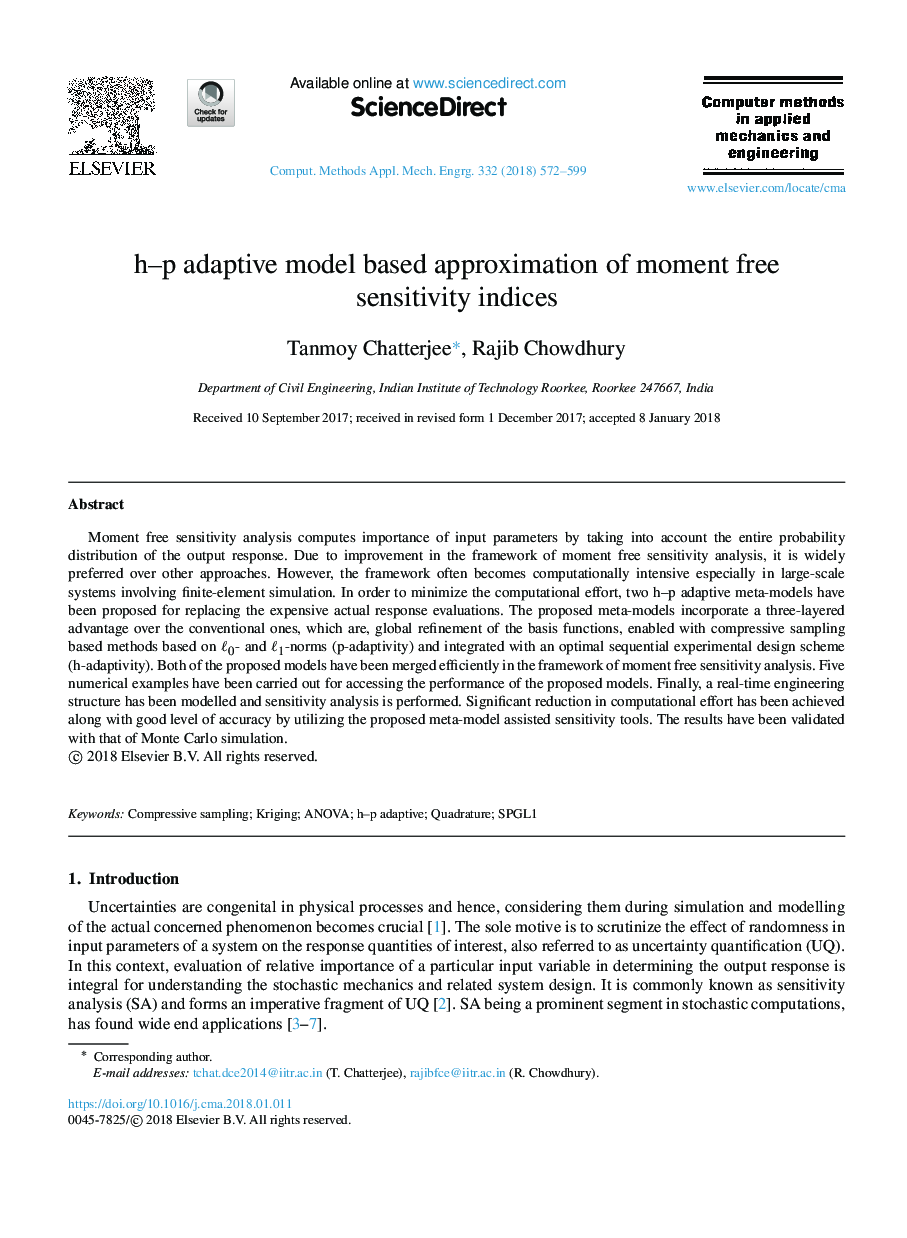| Article ID | Journal | Published Year | Pages | File Type |
|---|---|---|---|---|
| 6915620 | Computer Methods in Applied Mechanics and Engineering | 2018 | 28 Pages |
Abstract
Moment free sensitivity analysis computes importance of input parameters by taking into account the entire probability distribution of the output response. Due to improvement in the framework of moment free sensitivity analysis, it is widely preferred over other approaches. However, the framework often becomes computationally intensive especially in large-scale systems involving finite-element simulation. In order to minimize the computational effort, two h-p adaptive meta-models have been proposed for replacing the expensive actual response evaluations. The proposed meta-models incorporate a three-layered advantage over the conventional ones, which are, global refinement of the basis functions, enabled with compressive sampling based methods based on â0- and â1-norms (p-adaptivity) and integrated with an optimal sequential experimental design scheme (h-adaptivity). Both of the proposed models have been merged efficiently in the framework of moment free sensitivity analysis. Five numerical examples have been carried out for accessing the performance of the proposed models. Finally, a real-time engineering structure has been modelled and sensitivity analysis is performed. Significant reduction in computational effort has been achieved along with good level of accuracy by utilizing the proposed meta-model assisted sensitivity tools. The results have been validated with that of Monte Carlo simulation.
Related Topics
Physical Sciences and Engineering
Computer Science
Computer Science Applications
Authors
Tanmoy Chatterjee, Rajib Chowdhury,
